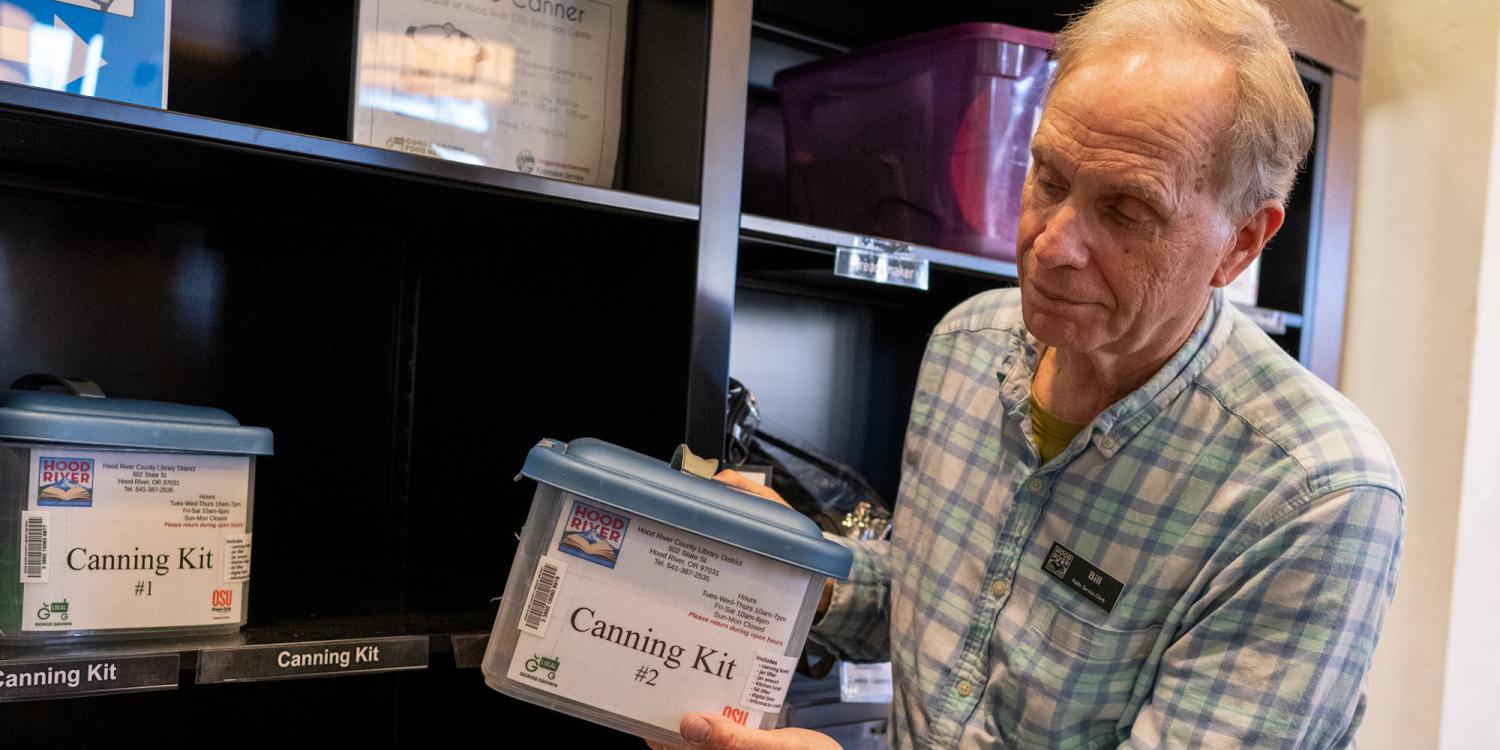
The Columbia River Gorge region of Oregon has extreme wealth disparities and high rates of food insecurity, particularly among those already receiving food assistance. This region also lacks resilience in local food systems during extreme weather events and natural disasters. Local grocery stores and food pantries run out of food in about three days when highways and freeways are closed during wildfires and ice storms. Despite the region being known for its abundance of fruits, the majority of these products are exported to international markets, leaving the Gorge with little “value-added” products, such as dried, freeze-dried, juiced, jammed, canned or fermented fruits.
In response, Oregon State University Extension Service partnered with the local food promotion organization Gorge Grown Food Network in 2013 and received $5,000 in grant funding to develop a program allowing residents to check out costly preservation equipment, as an alternative to buying their own. The goal for the program was to increase access to free and affordable equipment for home cooks and food preservers, small businesses and small-scale commercial producers to “add value” to their raw market items.
OSU Extension then selected, purchased and cataloged roughly 40 pieces of equipment, appliances and accessories. In addition, Extension developed a liability and check-out system with OSU’s legal team and created a promotional program to advertise to the community. OSU Extension operated the program out of the Hood River office for approximately six years, from 2013 to 2019, and averaged about 30-40 rental transactions per year before the collection was moved to the Hood River Library.
In just the first several months of the program’s move to the library, check-out rates quadrupled, from 30-40 per year to 136 rentals from May-December 2019. In 2021 there were 224 distinct rentals, 2022 had 267 rentals, and 2023 had 255 rentals. Kristin Franger, co-owner of Blue Bus Fermented Foods said, “it makes a difference,” and “this program is such a great way to share equipment and tools.”
The Added Value Rental Program celebrated its 10th anniversary in 2023 and plans on offering more equipment in 2024.